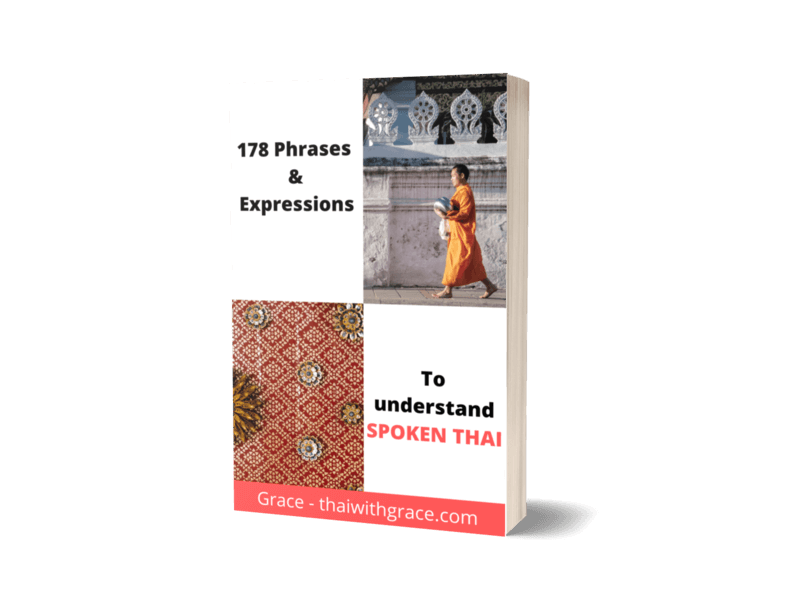Learning word order in Thai is not so difficult.
The main word order is equivalent to English. However, it starts to differ once you start adding in adverbs, or adjectives. But don’t worry, by the end of the article, you will understand.

Basic word order in Thai
The basic word order in Thai is the same as in English. In English, it is SVO = SUBJECT + VERB + OBJECT. In Thai, the word order is the same.
Let me show you some examples:
- I kick the ball (I= subject , kick = verb, ball = object)
ฉันเตะลูกบอล (ฉัน = Subject, เตะ = verb, ลูกบอล = object)
chăn dtè lôok bon - He eats food (He = subject, eats = verb, food = object)
เขากินอาหาร (เขา = subject, กิน = verb, อาหาร = object)
kăo gin aa-hăan
As you can see, the main word order is exactly the same.
Word order for Adjectives
The word order when using adjectives is different compared to English. In English, the adjective comes before the noun (i.e small cat, beautiful lady, happy child) but in Thai, the adjective comes AFTER the noun (sometimes, also after the classifier).
Also, a lot of the times you use ที่ (têe), which means “that”, to describe the noun. For example, in Thai instead of “red car”, you can say “car that’s red”.
Let’s see some examples:
- Delicious food
อาหารอร่อย (literally: food delicious)
aa-hăa-ror-rôi - Red car
รถสีแดง (literally: car red)
rót sĕe daeng - A big man
ผู้ชายตัวใหญ่ (literally: man body big)
pôo chaai dtua-yài - Small Chair
เก้าอี้ตัวเล็ก (chair small)
gâo-êe-dtua-lék
Word order for Adverbs
In Thai, adverbs always come at the end. Let’s see some examples.
Examples:
- The athlete sprints fast
นักกีฬาวิ่งเร็ว
nák gee-laa wîng reo - The turtles crawls slowly.
เต่าคลานช้าๆ
dtào klaan cháa cháa
Word order for questions
In general, in Thai, you put the question word at the end.
For example, yes and no questions (ไหม măi), the question word ไหม always comes at the end.
I will show you some examples from my article on the five W’s in Thai. Please read the article for more examples and deeper explanation.
- Do you like cats?
คุณชอบแมวไหม? (literally: you like cats?)
kun chôp maew măi - How did he win that game?
เขาชนะเกมนั้นได้อย่างไร (literally: he won that game how?)
kăo chá-ná gaym-nán dâai yàang rai - Who will you choose?
จะเลือกคนไหน (literally: will choose person which?)
jà lêuak kon năi - When did you come?
คุณมาเมื่อไหร่? (literally: you come when?)
kun maa mêua rài - Who are you?
คุณคือใคร? (literally: you are who?)
kun keu krai

